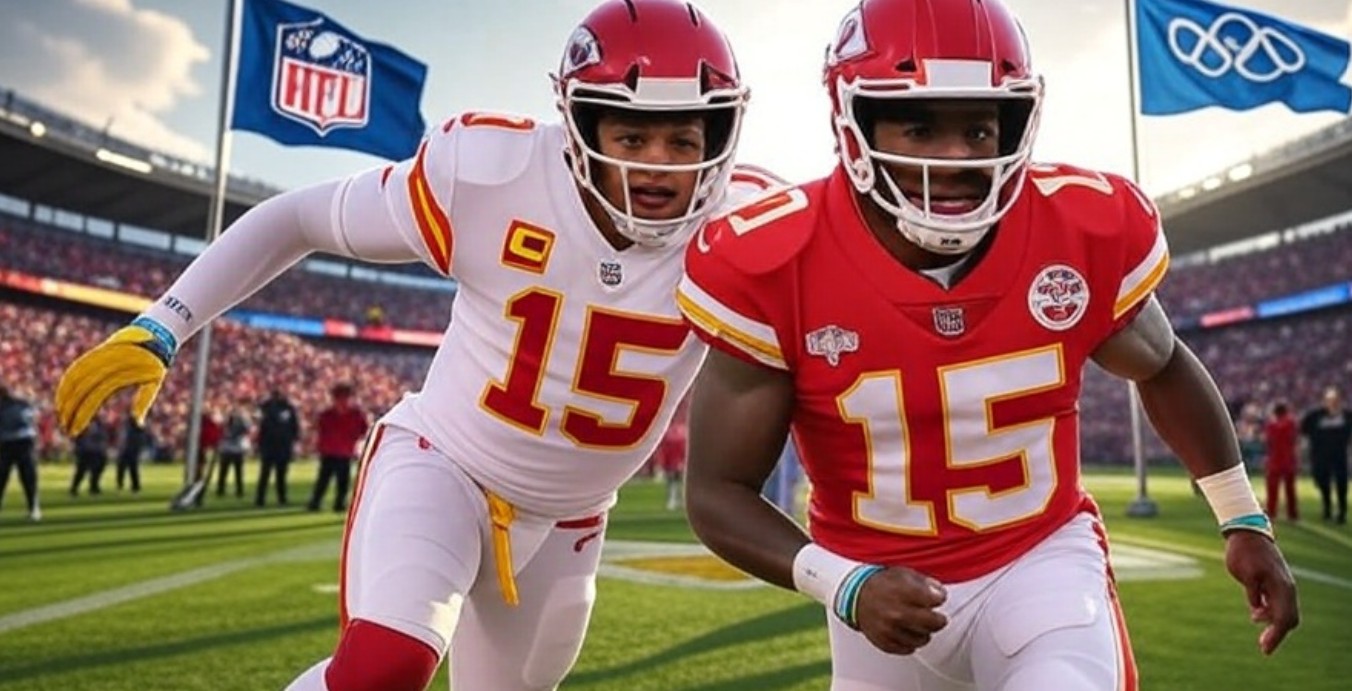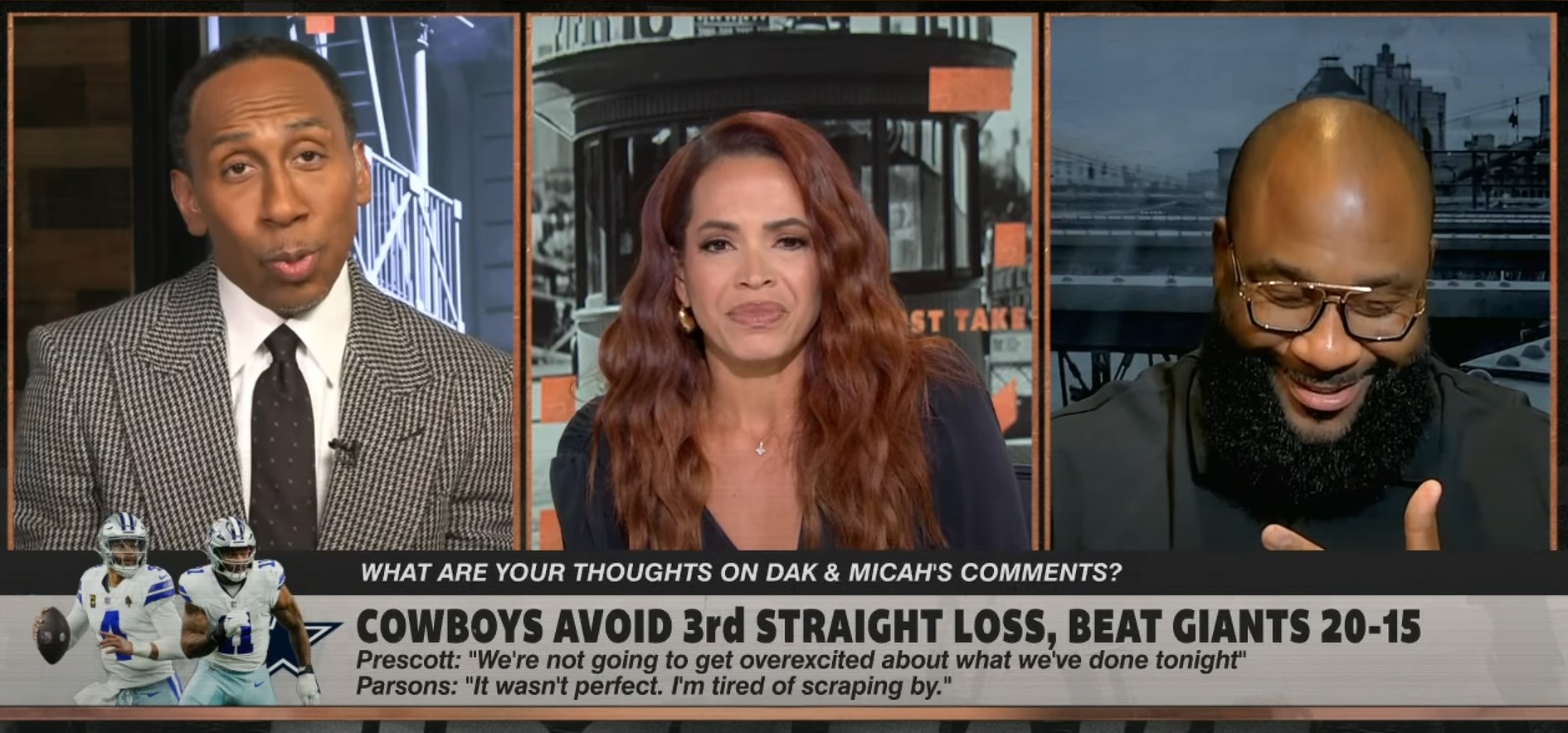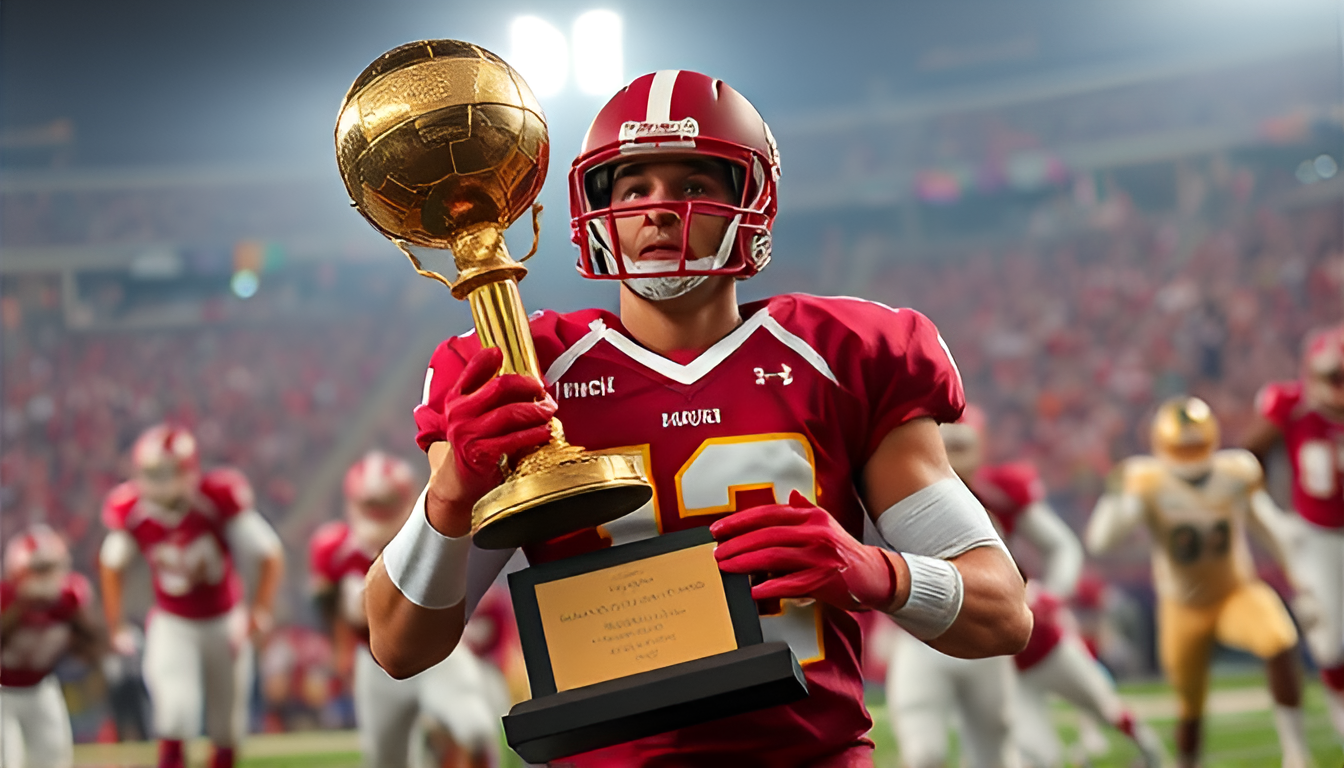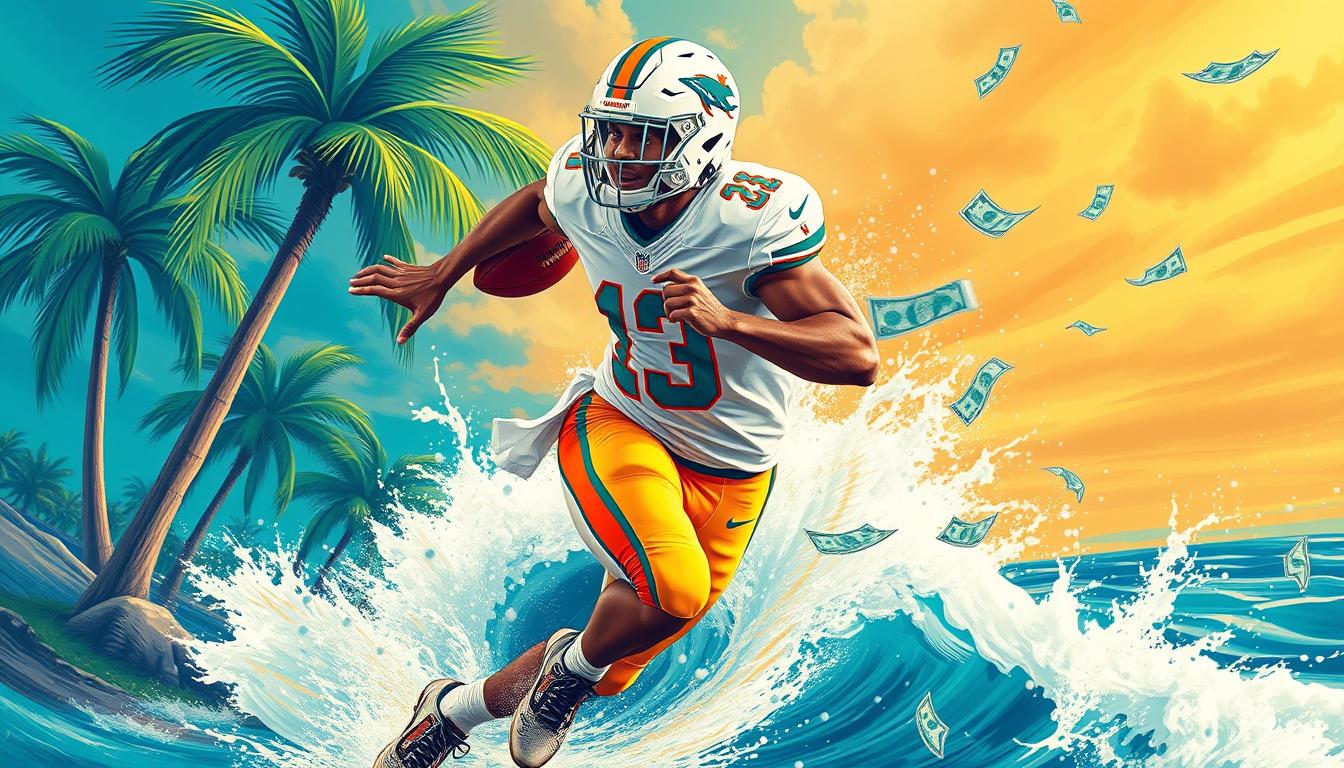In the spring of 2025, the National Football League (NFL) convened its annual spring meetings in Minnesota, where team owners, executives, and league officials gathered to chart the future of America’s most dominant sports league. Among the usual discussions of rule changes, revenue sharing, and media rights, one agenda item stood out as a radical departure from tradition: a proposal to allow NFL players to participate in Olympic flag football at the 2028 Los Angeles Games. This audacious idea, still in its exploratory phase, has ignited a firestorm of excitement, skepticism, and debate across the sports world. If realized, it could mark a transformative moment for the NFL, flag football, and the global sports landscape, with stars like Patrick Mahomes and Tyreek Hill potentially trading their helmets and pads for Olympic jerseys. Yet, the path to this vision is fraught with challenges, from injury risks to scheduling conflicts, raising questions about whether the NFL can balance its commercial juggernaut with Olympic idealism.
This article delves into the NFL’s Olympic flag football proposal, exploring its origins, potential impact, and the hurdles it must overcome. We’ll examine how this move aligns with the league’s international ambitions, the cultural significance of flag football’s Olympic inclusion, and the voices—players, fans, and stakeholders—shaping the conversation. By weaving together history, analysis, and speculative vision, we’ll unpack why this proposal could redefine the NFL’s global legacy while confronting the practical realities that threaten to derail it.
The Genesis of an Idea: Flag Football’s Olympic Ascent
To understand the NFL’s Olympic flag football proposal, we must first trace the sport’s journey to the Olympic stage. Flag football, a non-contact variant of American football, has long lived in the shadow of its tackle counterpart. Played with belts or flags that players pull to “tackle” opponents, it emphasizes speed, strategy, and skill over physicality. Its accessibility—requiring minimal equipment and adaptable to various skill levels—has made it a global phenomenon, from youth leagues in the United States to international tournaments in countries like Mexico, Canada, and Australia.
The International Olympic Committee (IOC) officially added flag football to the program for the 2028 Los Angeles Games in October 2023, a decision that reflected the sport’s growing popularity and the IOC’s push to modernize the Olympics with youth-friendly, inclusive sports. Alongside flag football, the 2028 Games will feature newcomers like breakdancing, sport climbing, and skateboarding, signaling a shift toward urban, accessible competitions. For the NFL, this was a golden opportunity. The league has spent decades trying to expand its footprint beyond North America, with mixed results. From the NFL Europe experiment in the 1990s to the ongoing International Series games in London, Germany, and Brazil, the league has struggled to replicate its domestic dominance abroad. Flag football, however, offers a unique entry point: a simplified, safer version of the sport that aligns with the Olympics’ global stage.
The idea of NFL players participating in the Olympics emerged from a confluence of factors. First, the NFL has been a vocal supporter of flag football’s growth, investing in youth programs and partnering with the International Federation of American Football (IFAF) to promote the sport globally. Second, the 2028 Los Angeles Games, hosted in the NFL’s backyard, provide a home-field advantage for marketing and logistics. Third, the star power of players like Patrick Mahomes, a two-time NFL MVP, and Tyreek Hill, known for his blazing speed, could elevate flag football’s visibility to unprecedented levels. The proposal discussed in Minnesota was not a finalized plan but a bold vision: allow NFL players to compete under the U.S. flag, representing their country while showcasing the league’s talent to a global audience.
The NFL’s Global Ambition: Why Flag Football Matters
The NFL’s interest in Olympic flag football is not merely altruistic; it’s a calculated move to accelerate its international expansion. American football’s global appeal has historically been limited by its complexity, physicality, and cultural specificity. Unlike soccer or basketball, which have universal rules and minimal equipment needs, tackle football requires extensive gear, specialized training, and a tolerance for physical risk that many cultures find daunting. Flag football, by contrast, is a bridge—a sport that retains the essence of football (passing, strategy, athleticism) while stripping away barriers like cost and injury concerns.
The NFL has already seen success with flag football as a global ambassador. In 2024, the league reported that over 20 million people worldwide play flag football, with participation growing in countries like Japan, Brazil, and the United Kingdom. The sport’s inclusion in the 2028 Olympics is expected to supercharge this growth, with the IOC projecting viewership in the billions. For the NFL, this is a chance to market its brand to new audiences, particularly in emerging markets like Asia and Latin America, where football has yet to gain a foothold. By featuring NFL stars in the Olympics, the league hopes to create a halo effect, driving interest in both flag and tackle football.
The financial stakes are immense. The NFL’s global revenue, while dwarfed by its domestic earnings of over $20 billion annually, is a growing segment. International media rights, sponsorships, and merchandise sales could see exponential growth if flag football captures the Olympic spotlight. Imagine a scenario where Patrick Mahomes leads Team USA to a gold medal in front of a global audience: the NFL’s logo would be plastered across highlight reels, social media, and merchandise, creating a virtuous cycle of brand recognition. Moreover, the Olympics could serve as a pipeline for new talent, with young athletes inspired to try flag football and, eventually, transition to the tackle game.
The Star Power Factor: Mahomes, Hill, and the Olympic Dream
At the heart of the NFL’s Olympic proposal is the allure of its players. Patrick Mahomes, the Kansas City Chiefs’ quarterback, is a global sports icon, known for his no-look passes and clutch performances. Tyreek Hill, the Miami Dolphins’ wide receiver, is a track-star-turned-football-phenom whose speed would be tailor-made for flag football’s open-field style. Other names floated include Jalen Hurts, whose dual-threat versatility could shine, and defensive stars like Micah Parsons, who could disrupt plays without the need for tackling.
The appeal of seeing these players in the Olympics is undeniable. Flag football’s 5-on-5 format, played on a smaller field with no linemen, emphasizes speed and skill—qualities that NFL stars possess in spades. A Mahomes-led Team USA could dominate, showcasing the athleticism that makes the NFL a spectacle. For fans, it’s a chance to see their heroes in a new context, competing for national pride rather than a Super Bowl ring. For the players, it’s an opportunity to cement their legacies on a global stage, joining the ranks of Olympians like Usain Bolt and Simone Biles.
Yet, the proposal hinges on player willingness. Unlike basketball, where NBA stars have embraced the Olympics since the 1992 Dream Team, football players face unique pressures. The NFL season, which runs from September to February, leaves little room for additional commitments. Players like Mahomes, who are under lucrative contracts, may hesitate to risk injury or fatigue, even in a non-contact sport. Moreover, the NFL’s culture of team loyalty could clash with the Olympic ethos of national representation.
NFL Olympic Flag Football Proposal
Would a player like Hill, who thrives in the Dolphins’ system, be willing to take time away from team preparation to train for flag football? These questions remain unanswered, but early indications suggest enthusiasm. Mahomes, in a 2024 interview, expressed intrigue, saying, “It’d be cool to represent the U.S. and try something new.” Hill, known for his competitive fire, has similarly hinted at interest, noting that flag football aligns with his streetball roots.
Challenges and Concerns: Injuries, Scheduling, and Logistics
While the vision of NFL stars in the Olympics is tantalizing, the proposal faces significant hurdles. The most pressing concern is player safety. Although flag football is non-contact, injuries are still possible—twisted ankles, pulled muscles, or collisions during high-speed plays. For players under multi-million-dollar contracts, even a minor injury could have major repercussions. NFL teams, who invest heavily in their rosters, may balk at the idea of their stars risking health for an Olympic medal. The memory of past injuries in international competitions, like NBA player Paul George’s gruesome leg break in a 2014 Team USA scrimmage, looms large.
Scheduling is another obstacle. The 2028 Olympics are slated for July, overlapping with the NFL’s training camp and preseason. This creates a logistical nightmare for players who wish to participate. Would they skip camp to train with Team USA, potentially alienating coaches and teammates? Would the NFL adjust its calendar to accommodate Olympic participation, perhaps by shortening the preseason? These questions require delicate negotiations between the NFL, the NFL Players Association (NFLPA), and the IOC. The NFLPA, in particular, will likely demand assurances that players’ contracts and health are protected.
Logistics also pose challenges. Flag football’s Olympic format differs from the NFL’s tackle game, requiring specialized training. Players would need to adapt to a 5-on-5 setup, with rules emphasizing passing and speed over physicality. Assembling a Team USA roster would involve tryouts, coaching, and coordination, all of which demand time and resources. The NFL would likely partner with USA Football and the IFAF to manage this process, but the complexity of integrating professional athletes into an amateur framework cannot be understated.
Finally, there’s the question of fairness. Allowing NFL players to compete could create an uneven playing field, as countries with less-developed football programs struggle to match the U.S.’s talent pool. The IOC and IFAF will need to balance competitive integrity with the desire to showcase the sport’s best athletes. Some have suggested a hybrid model, where NFL players are limited to a few roster spots, with the rest filled by amateur or semi-professional flag football players. This approach could preserve the Olympic spirit while still leveraging the NFL’s star power.
The Cultural Impact: Redefining Football’s Global Narrative
Beyond logistics, the NFL’s Olympic proposal carries profound cultural implications. American football has long been a symbol of U.S. exceptionalism, a sport deeply tied to American identity. Its rituals—tailgates, Super Bowl parties, Friday night high school games—are quintessentially American. By entering the Olympic stage, the NFL has a chance to redefine football as a global sport, shedding its insular reputation. Flag football, with its universal appeal, is the perfect vehicle for this transformation.
For American fans, the proposal taps into patriotic pride. The idea of NFL stars competing for gold evokes memories of the 1992 Dream Team, which showcased basketball’s dominance while elevating its global profile. A similar phenomenon could unfold in 2028, with Mahomes and company becoming ambassadors for both football and the U.S. For international audiences, the Olympics could demystify football, making it more accessible. A child in Brazil or Japan, watching Tyreek Hill race down the field, might be inspired to pick up a flag football belt, much as Lionel Messi’s World Cup performances inspire young soccer players.
The proposal also aligns with broader trends in sports. The rise of women’s flag football, which will also feature in the 2028 Olympics, underscores the sport’s inclusivity. The NFL has already invested in women’s flag football, with programs like the NFL FLAG Championships gaining traction. Stars like Diana Flores, a Mexican flag football player who appeared in a 2023 NFL commercial, highlight the sport’s diversity. By embracing the Olympics, the NFL can amplify these voices, showcasing football as a sport for all genders, ages, and backgrounds.
Voices in the Conversation: Stakeholders Weigh In
The NFL’s Olympic proposal has sparked a lively debate among stakeholders. Fans, predictably, are divided. On platforms like X, some express excitement, with posts like, “Mahomes in the Olympics? Take my money!” Others are skeptical, citing injury risks: “No way teams let their stars play. Too much money on the line.” Players, meanwhile, are cautiously optimistic. Jalen Hurts, in a recent press conference, called the idea “intriguing” but emphasized the need for “clear rules and protections.” Coaches and executives are more reserved, with one anonymous general manager quoted as saying, “It’s a great idea for marketing, but I don’t want my QB out there risking a sprain.”
The IOC and IFAF are enthusiastic partners, seeing the NFL’s involvement as a boon for flag football’s growth. IOC president Thomas Bach has praised the sport’s “dynamic, inclusive nature,” while IFAF president Pierre Trochet has called NFL participation a “game-changer.” However, both organizations stress the need for collaboration to ensure fairness and safety.
Critics, including some sports analysts, argue that the NFL’s motives are purely commercial. They point to the league’s history of prioritizing profit over player welfare, citing issues like concussion protocols and short-term contracts. Allowing players to compete in the Olympics, they argue, could be a publicity stunt rather than a genuine commitment to the sport’s global growth. These concerns underscore the need for transparency as the NFL navigates this uncharted territory.
The Road Ahead: What’s Next for the NFL and the Olympics?
As of June 2025, the NFL’s Olympic flag football proposal remains in the exploratory phase. The spring meetings in Minnesota produced a framework, but no concrete decisions. The next steps involve negotiations with the NFLPA, IOC, and IFAF to address logistical and contractual issues. A pilot program, perhaps a flag football exhibition during the 2026 or 2027 NFL offseason, could test the waters. The NFL might also launch a marketing campaign to build excitement, featuring stars like Mahomes and Hill in promotional materials.
The proposal’s success hinges on collaboration and compromise. The NFL must balance its commercial interests with player safety and Olympic ideals. Teams will need assurances that their investments—players under contract—are protected. Fans, meanwhile, will demand a spectacle worthy of the Olympic stage, with rosters that showcase the NFL’s best talent.
If the NFL pulls it off, the 2028 Los Angeles Games could be a defining moment. Picture the scene: SoFi Stadium, home of the Los Angeles Rams and Chargers, packed with fans from around the world. Patrick Mahomes steps onto the field, wearing a Team USA jersey, as the crowd roars. Tyreek Hill sprints past defenders, pulling a flag in a blur of speed. The broadcast reaches billions, with commentators marveling at the sport’s athleticism. For the NFL, it’s a chance to transcend its American roots, becoming a truly global force. For flag football, it’s a moment of validation, proving it belongs alongside the world’s greatest sports.
Conclusion: A Legacy in the Making
The NFL’s Olympic flag football proposal is more than a sports story; it’s a cultural and commercial gamble with the potential to reshape the global sports landscape. By leveraging its star power, the NFL aims to elevate flag football, expand its brand, and inspire a new generation of players and fans. Yet, the challenges— injuries, scheduling, fairness—remind us that ambition alone is not enough. The league must navigate these obstacles with care, ensuring that its Olympic venture honors the sport’s spirit while protecting its players.
As we look toward 2028, the image of NFL stars competing for Olympic gold feels both thrilling and surreal. It’s a vision that blends tradition with innovation, patriotism with globalism, and athleticism with spectacle. Whether it succeeds or stumbles, the NFL’s Olympic journey will be a story to watch, a testament to the power of sports to unite, inspire, and transform.




